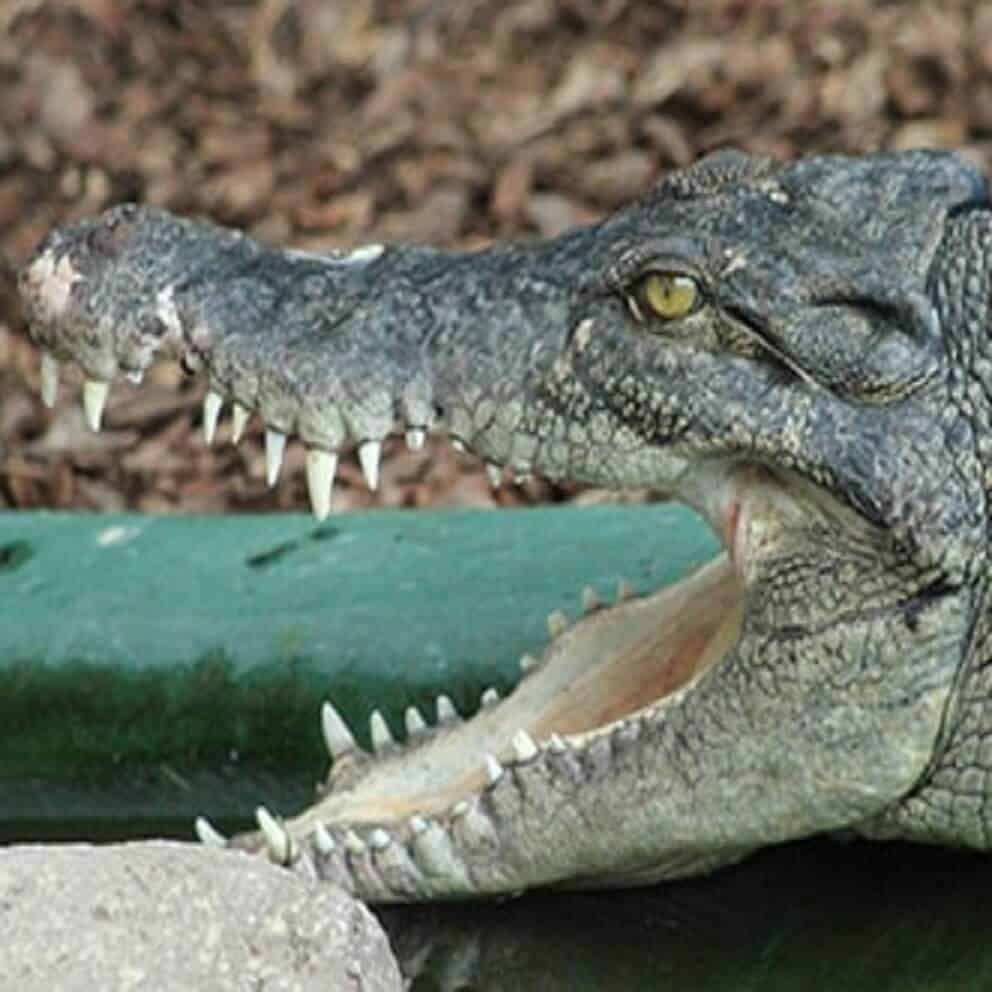Unlocking the Mysteries of Saltwater Crocodiles: A Guide for Curious Parents
Hey there, awesome parents! Are you ready to dive into the intriguing realm of the saltwater crocodile with your kiddos? These remarkable creatures capture the imagination with their prehistoric looks and powerful presence. But don’t worry, we’re here to guide you through the essentials of these ancient animals, ensuring you’ve got all the fun facts and safety tips to share with your little explorers. So, grab your adventure hats, and let’s embark on a croc-tastic journey!
What is a Saltwater Crocodile?
First off, the saltwater crocodile, also affectionately known as “salties,” is the largest living reptile on our planet. With a scientific name like Crocodylus porosus, it’s no surprise these guys mean business in the reptile world. They can be found roaming the brackish and saltwater regions of Southeast Asia and Australia, hence their name, but they’re pretty comfy in fresh water too.
The Mighty Habitat of the Saltwater Crocodile
Curious about where these magnificent creatures call home? Well, salties love to chill in estuaries, rivers, and coastal areas, often seen soaking up some rays or stealthily lurking in the water. But here’s a fun twist: they’re famous for their epic travels, swimming across oceans to find new homes, which just adds to their mystique.
Decoding the Saltwater Crocodile’s Behaviors
Get ready to impress your kids with some cool crocodile behaviors. Did you know salties are apex predators? That’s right! At the top of their food chain, they enjoy a diverse menu including fish, birds, and even other crocs (yikes!). But it’s not all about their diet. These crocs are also experts at the ‘high walk’ – A strut that elevates their body off the ground. Talk about a commanding presence!
How Big Do Saltwater Crocs Grow?
Here’s a fact to wow the socks off your inquisitive young ones – saltwater crocodiles are ginormous! Males can grow up to an astonishing 23 feet in length and weigh more than 2,200 pounds; that’s about the weight of a small car! Females are slightly smaller but still incredibly impressive. The size of these crocodiles is a testament to their remarkable survival skills, having been around since the time of the dinosaurs.
Conservation Status: How Are Saltwater Crocodiles Faring?
It’s essential we talk about conservation because these critters rely on us to maintain their habitats and populations. Currently, the saltwater crocodile is listed as Least Concern by the IUCN, but that doesn’t mean they’re out of the woods yet. Habitat loss and human conflicts pose real threats, making conservation efforts critical for their continued survival.
Staying Safe Around Saltwater Crocodiles
And now, the vital part for any parent – safety around these mighty reptiles. While they’re fascinating to learn about, it’s crucial to respect saltwater crocodiles and keep a safe distance. Always follow local advice, observe warning signs, and never swim in areas known for crocodile activity. Yeah, let’s keep the swimming to the pool, folks!
So, there you have it, the beginning of our journey into the world of saltwater crocodiles. Stay tuned to this guide as we continue to explore more aspects of these remarkable creatures. From their incredible survival tactics to their role in the ecosystem, there’s so much more to unravel about the lives of saltwater crocodiles. After all, knowledge is power, especially when it comes to understanding and coexisting with wildlife.
Stick around as we delve deeper into the subject, ensuring you and your family are well-equipped with fascinating crocodile facts and important safety information, making your next wildlife adventure not only educational but also safe and enjoyable!

Five Essential Saltwater Crocodile Insights for Parents
1. Understanding Crocodile Body Language and Signs
When it comes to saltwater crocodiles, interpreting their body language can be a lifesaver. Encourage your family to understand the signs of aggression, such as a crocodile holding its mouth wide open or hissing – these are clear messages to back off. Explain to your children the importance of always being observant near waterways where crocodiles may reside.
2. The Importance of Crocodile Nesting Sites
Exploring nature is fascinating, but did you know that stumbling upon a crocodile nesting site can be dangerous? Female crocodiles can be quite protective of their nests, which are usually built on river banks. Educate your kids to recognize these sites, marked by mounds of vegetation and mud, and to stay far away to avoid disturbing a potentially defensive mother croc.
3. Saltwater Crocodile Communication
Did you know that crocodiles are pretty chatty among themselves? Saltwater crocodiles use various sounds to communicate with each other, something that can be intriguing and educational to observe from a safe distance. With your children, listen for the distinct bellows, growls, and hisses that can clue you into their interactions without interfering.
4. Environmental Factors Affecting Crocodile Habitats
Spark an early interest in your children about environmental issues by discussing how pollution, climate change, and habitat destruction affect crocodile populations. Understanding these factors can foster a sense of stewardship for preserving the ecosystems that these incredible animals depend on.
5. Crocodile Conservation and Human Impact
Finally, involve your children in the conversation about human impact on wildlife. Discussing issues like illegal hunting and the crocodile leather trade can be eye-opening for them. Emphasize the significance of responsible actions when it comes to human interactions with crocodiles, including supporting sustainable tourism practices.
Arming your family with knowledge and respect for saltwater crocodiles is a wonderful way to encourage conscientious exploration of the world’s natural wonders. By being informed and cautious, you can ensure that your outdoor adventures are memorable for the right reasons. Delve into this guide, and you’ll walk away with an enriched understanding of these ancient reptiles and the role we play in sharing the planet with them.
Digging Deeper: The Role of Saltwater Crocodiles in the Ecosystem
Understanding the ecological role of saltwater crocodiles can be a fascinating aspect of conservation education. These predators help maintain the balance in their environment by controlling populations of other species, which in turn affects the health of the ecosystems where they live. Plus, crocodiles contribute to the richness of biodiversity, supporting a wide array of species in their habitats. That’s something worth crooning about!
The Saltwater Crocodile Lifecycle: From Hatchling to Apex Predator
Our journey wouldn’t be complete without a peek into the life stages of these ancient reptiles. Watching crocodile hatchlings emerge from their eggs and grow into towering adults can be a captivating process to learn with your children. Understanding the lifecycle of saltwater crocodiles not only provides insights into their survival but also illustrates the delicate balance of nature and the value of each creature’s role.
Final Parental Tips: Enjoying Crocodile-Safe Activities
And for the grand finale of our salty escapade – let’s talk about family-friendly activities that can be enjoyed without risking a crocodile encounter. Opt for guided river tours with experienced operators, visit crocodile parks or zoos where safety is a priority, and embrace nature documentaries or books that explore the lives of these fierce reptiles, all from the comfort of your home or within the safe confines of structured activities.
With these pointers, the world of saltwater crocodiles opens up in a new light – one that emphasizes respect, understanding, and coexistence. You’re now equipped to share the fascinating details of saltwater crocodiles with your kids, sparking a love for wildlife and a drive to protect these incredible animals for generations to come. So, keep those adventure hats on, and step into the world with eyes wide open and hearts filled with wonder!
For more great fun click here. For more information see here
Disclaimer
The articles available via our website provide general information only and we strongly urge readers to exercise caution and conduct their own thorough research and fact-checking. The information presented should not be taken as absolute truth, and, to the maximum extent permitted by law, we will not be held liable for any inaccuracies or errors in the content. It is essential for individuals to independently verify and validate the information before making any decisions or taking any actions based on the articles.




